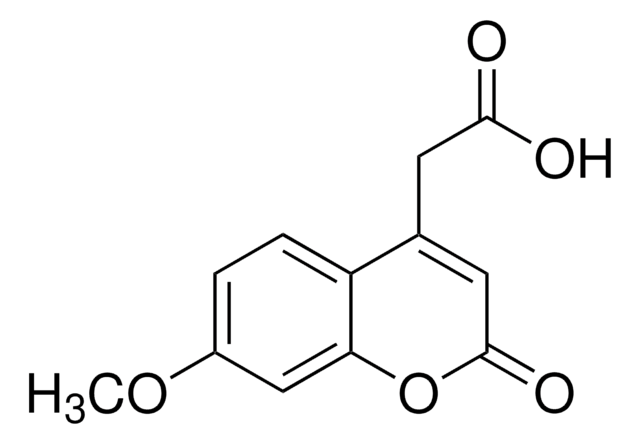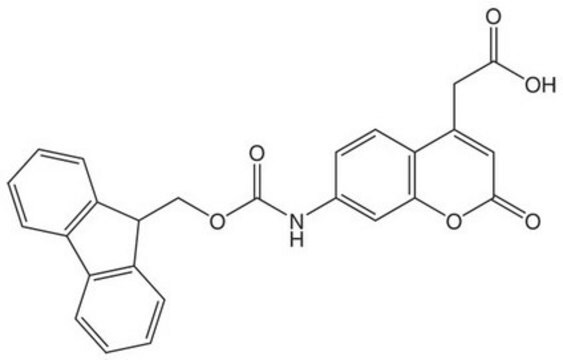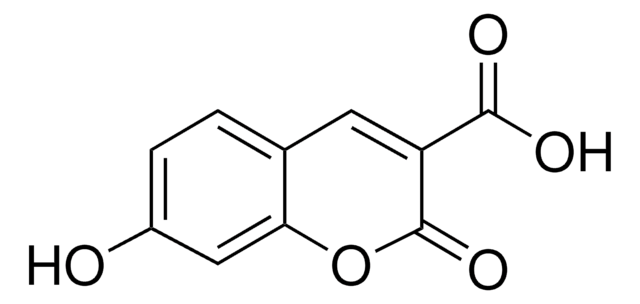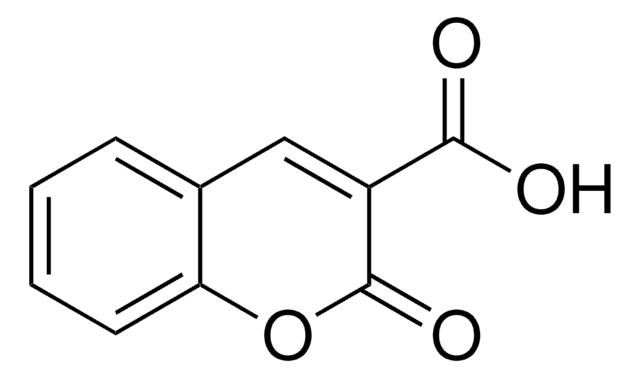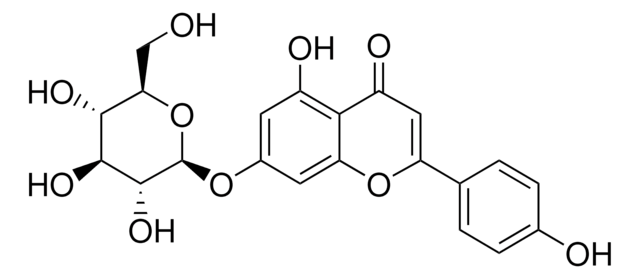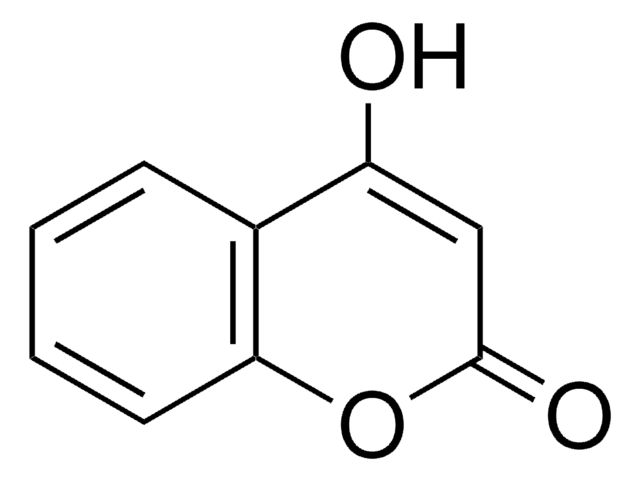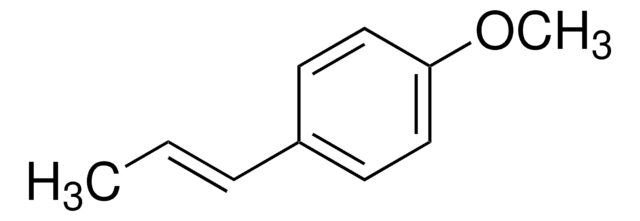W515809
7-Methoxycoumarin
≥98%
Sinónimos:
Herniarin, Methyl umbelliferyl ether
About This Item
Productos recomendados
biological source
synthetic
Quality Level
assay
≥98%
mp
115-121 °C
117-121 °C (lit.)
application(s)
flavors and fragrances
documentation
see Safety & Documentation for available documents
food allergen
no known allergens
organoleptic
balsam
SMILES string
COc1ccc2C=CC(=O)Oc2c1
InChI
1S/C10H8O3/c1-12-8-4-2-7-3-5-10(11)13-9(7)6-8/h2-6H,1H3
InChI key
LIIALPBMIOVAHH-UHFFFAOYSA-N
¿Está buscando productos similares? Visita Guía de comparación de productos
General description
Disclaimer
Storage Class
11 - Combustible Solids
wgk_germany
WGK 2
flash_point_f
Not applicable
flash_point_c
Not applicable
ppe
Eyeshields, Gloves, type N95 (US)
Elija entre una de las versiones más recientes:
¿Ya tiene este producto?
Encuentre la documentación para los productos que ha comprado recientemente en la Biblioteca de documentos.
Los clientes también vieron
Nuestro equipo de científicos tiene experiencia en todas las áreas de investigación: Ciencias de la vida, Ciencia de los materiales, Síntesis química, Cromatografía, Analítica y muchas otras.
Póngase en contacto con el Servicio técnico